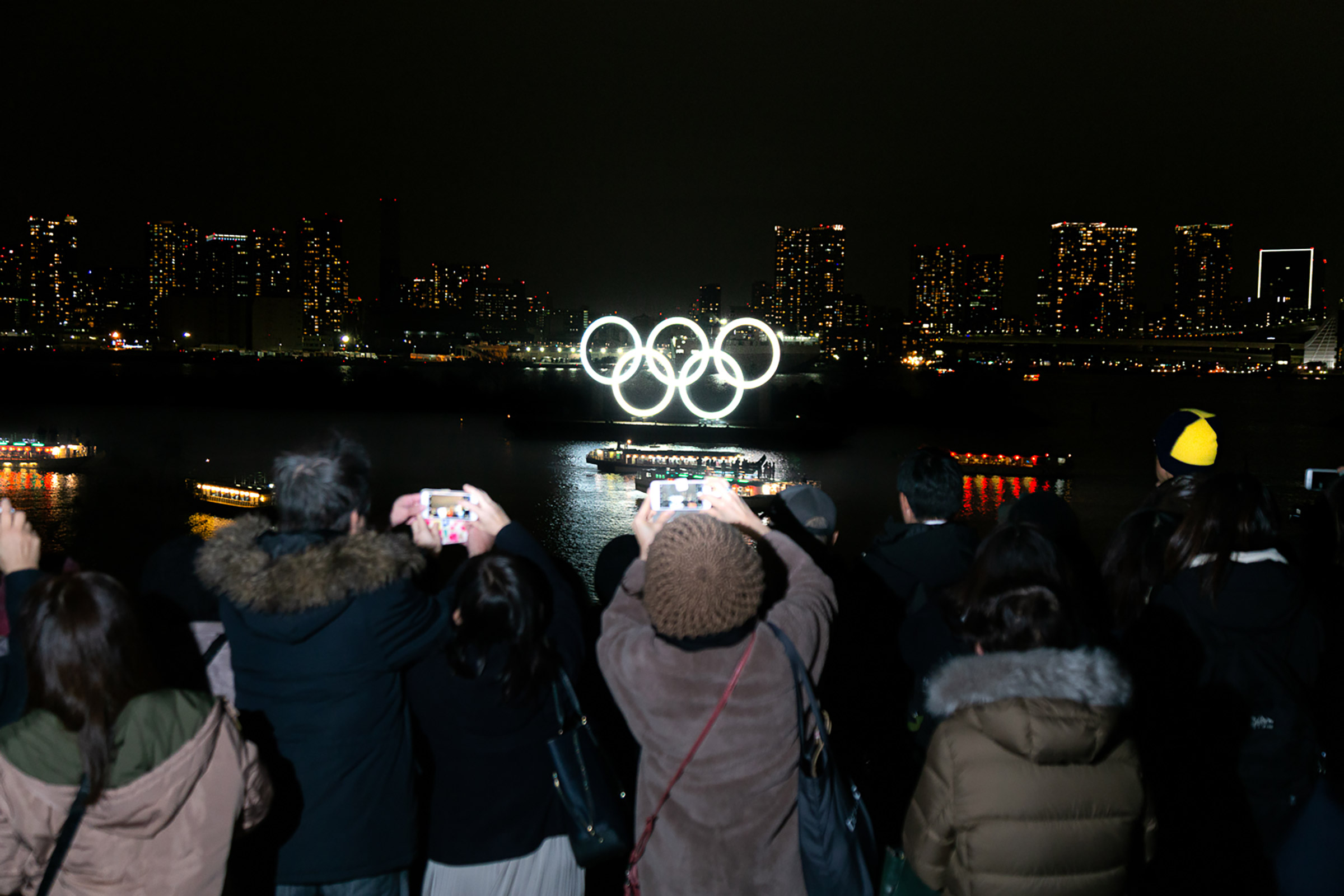Even the best-laid plans were no match for 2020.
When TIME sat down with Yuriko Koike in late 2019, Tokyo’s governor was exuberant in anticipation of the approaching Olympic and Paralympic Games. She capped our interview in the city’s hulking Metropolitan Government Building with an impromptu tour of the rooftop viewing gallery, where tourists browsed caps and tees emblazoned with the Tokyo 2020 emblem. In a flash, Koike hopped a security barrier and sat at a yellow-and-black polka-dot piano to play a few bars of “Bohemian Rhapsody.” “Did you know this is Godzilla’s favorite building?” she teased.
The monster could hardly have done more damage to Tokyo than the pandemic. The Games have been postponed, tourists have been largely banished from the Japanese capital, and TIME’s conversation with Koike on Oct. 14 takes place at a socially distant 1,000 miles via Zoom. Yet her ardor remained undimmed as Koike discussed plans for the rescheduled Games set to run from July 23 to Aug. 8. “You can feel the power of sport is even stronger because of the current situation,” she said. “Tokyo 2020 will be symbolic to prove that people, all together from across the world, have defeated the virus.”
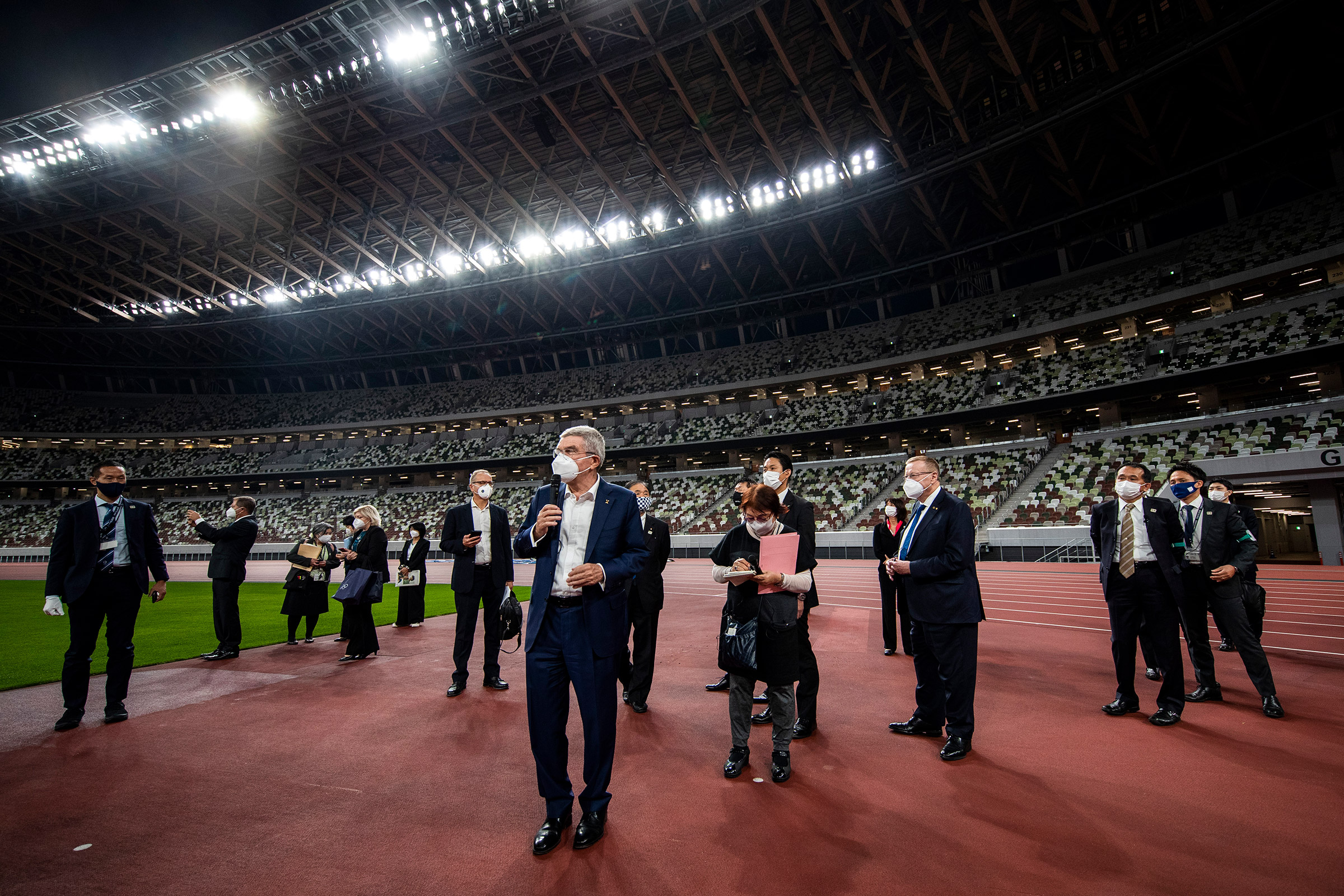
But at this point, that defeat is far from guaranteed. As of mid-December, the pandemic has claimed more than 1.6 million lives worldwide. The U.S. and Europe are witnessing grave winter surges. And though Japan has suffered only 2,700 deaths, owing to strict border controls and ubiquitous masks, in December Tokyo raised its health care alert to the highest level for the first time. Japan isn’t expecting to roll out vaccines until March. COVID-19 will still be a reality in July.
Little wonder some believe the risk of staging the Games might outweigh the reward. “The decision to press ahead with the Tokyo Olympics in 2021 is truly a matter of life and death,” says Jules Boykoff, a professor at Pacific University in Oregon, who studies the Olympics and represented the U.S. at soccer. “We’re talking about an optional sporting spectacle, not some essential service to -humanity, and when you throw public health into the mix, the calculus can become uncouth pretty quick.”
Yet, for Japan’s leaders, cancellation is not an option. Rival Beijing has the 2022 Winter Olympics, which will almost certainly go ahead as scheduled, and the symbolism would be too much to bear were Tokyo’s games abandoned. “That just cannot happen,” says Jeff Kingston, a professor at Temple University in Tokyo. “It would be a huge loss of face.”
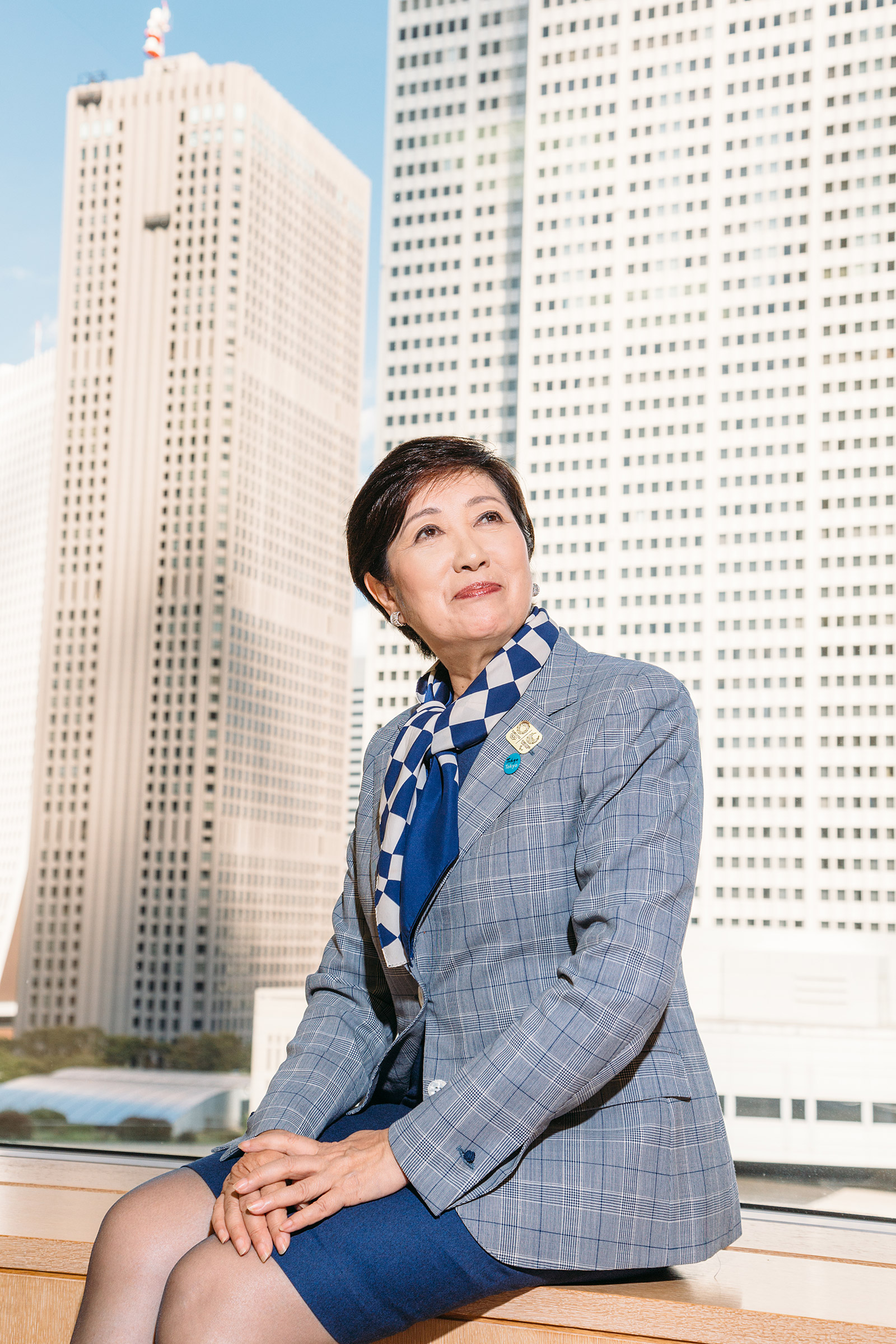
Postponement to 2022 is also off the table, says Thomas Bach, the president of the International Olympic Committee (IOC). “No, the preparation of the athletes has started already, and for some of them, it would be too long to be prepared,” he says. “You also cannot maintain the infrastructure of the Games for such a long period of time. All this -infrastructure has a legacy. The Olympic Village will be turned into apartments for the population of Tokyo, for instance.”
But even if the Olympic flame is lit as planned, who will come? Airline travel has cratered, meaning simply getting the 15,490 Olympic and Paralympic athletes from 206 nations and territories to Tokyo is a significant hurdle—let alone the 500,000 spectators originally forecast to cheer on the 339 different events.
Then there’s the question of how to keep thousands of officials, judges, dignitaries, journalists and sponsors safe in one of the world’s most crowded cities—let alone placate 38 million embattled citizens faced with a potential catastrophic super-spreader event. Olympic chiefs have not yet provided answers. For sure, testing, masks and social distancing will be the bedrock. But organizers will not yet explain entry requirements for Japan, whether vaccinations will be mandatory, how many spectators allowed into stadia, if the Olympic Village will be sequestered into bubbles, live press conferences held and so on. “This is work in progress,” says Bach.
It is Tokyo’s fate to stage the world’s largest sporting event a year later than planned, at a time of global economic uncertainty and amid a pandemic that will be far from over on July 23. Is it really ready? Bach, for one, has few doubts. “Tokyo is the best ever prepared Olympic city. We are very, very confident, and at this moment, we have no reason to believe that the Games could not take place.”
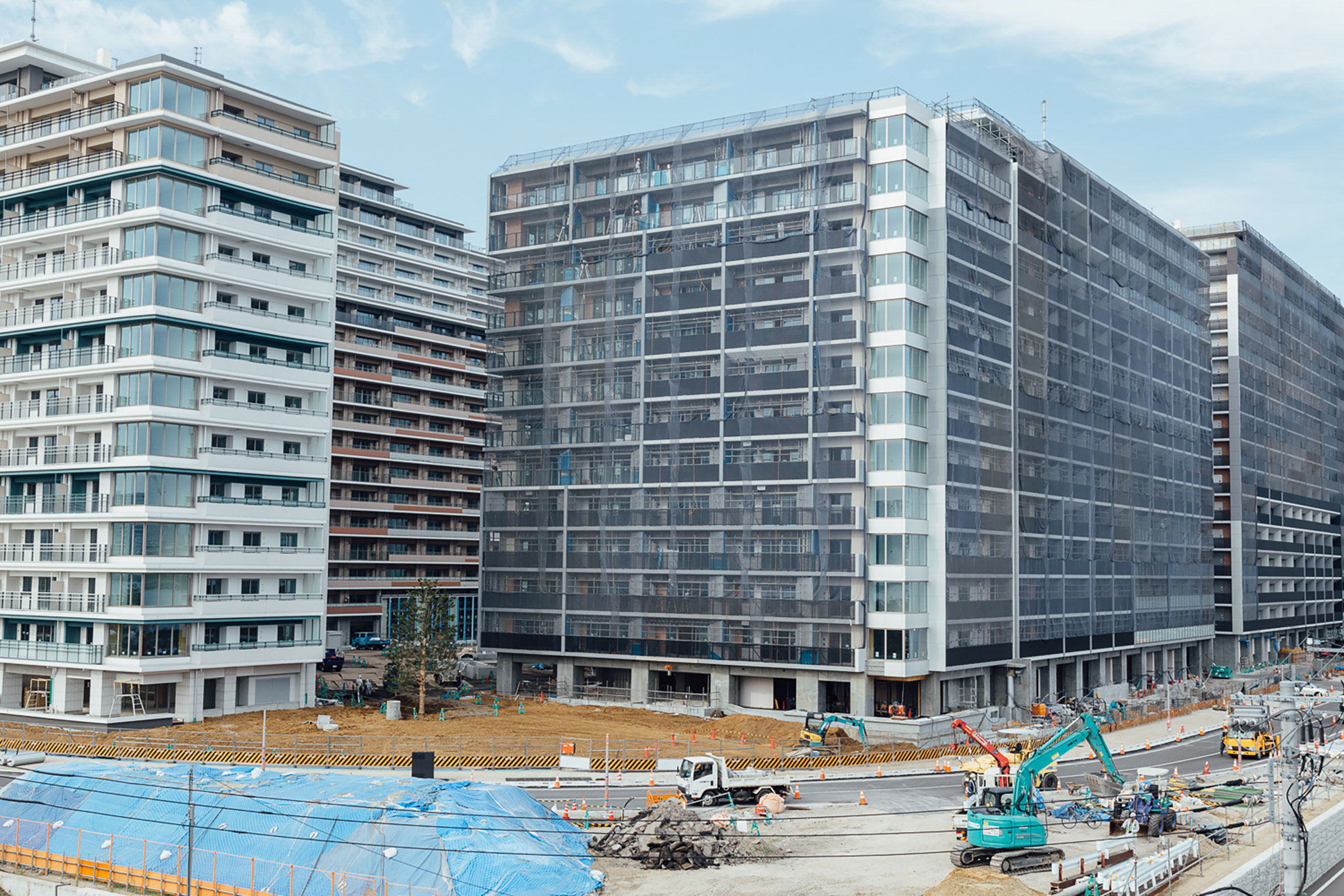
Japan’s Olympic Minister Seiko Hashimoto recently said the Tokyo Games would be held in the summer “at any cost.” She wasn’t kidding. An Oxford University study published in September showed these were the most expensive Summer Olympics on record. Although Japan officially earmarked $12.6 billion for the Games, a government audit last year put the true figure at twice as much. All but $5.6 billion is public money.
The rest comes from sponsors, who are reportedly seeking an additional $200 million to defray the estimated $2.8 billion costs of postponing the event. But many of these blue-chip backers are themselves suffering dire slumps: Japan’s ANA airline and JTB travel agency posted losses of $1.8 billion and $750 million, respectively, in the first half of this financial year. It’s also unclear whether sponsorship has retained its value, given Beijing 2022 is fast approaching, or its perks, such as guaranteed admission to headline events. Refunds have already been sought on 18% of the 4.45 million tickets sold, according to organizers.
The people whose taxes are helping pay for the Games are increasingly turning against them. An October survey by Kyodo News revealed only 38% of Japanese support hosting the Games next summer, while 31% favored another postponement and nearly a quarter want them canceled altogether. Support is also fading for the Prime Minister who inherited office—and the Games—in September. Yoshihide Suga’s sagging approval rating stems from his “Go to Travel” initiative to boost domestic tourism, which is being blamed for Japan’s latest spike in COVID-19 cases. But he’s also trying to emerge from the shadow of his predecessor Shinzo Abe, who was Japan’s longest-serving Prime Minister until he stepped down on Sept. 16 because of ill health. With Japan heading to the ballot box in October, Suga’s fate may be closely tied to that of the Games. “This is a high-stakes game for Prime Minister Suga,” says Mieko Nakabayashi, a former lawmaker and current professor at Waseda –University’s School of Social Sciences in Tokyo. If costs spiral upwards and the Games aren’t seen as a success, she says, his “bid to prolong and maintain his power may be in danger.”
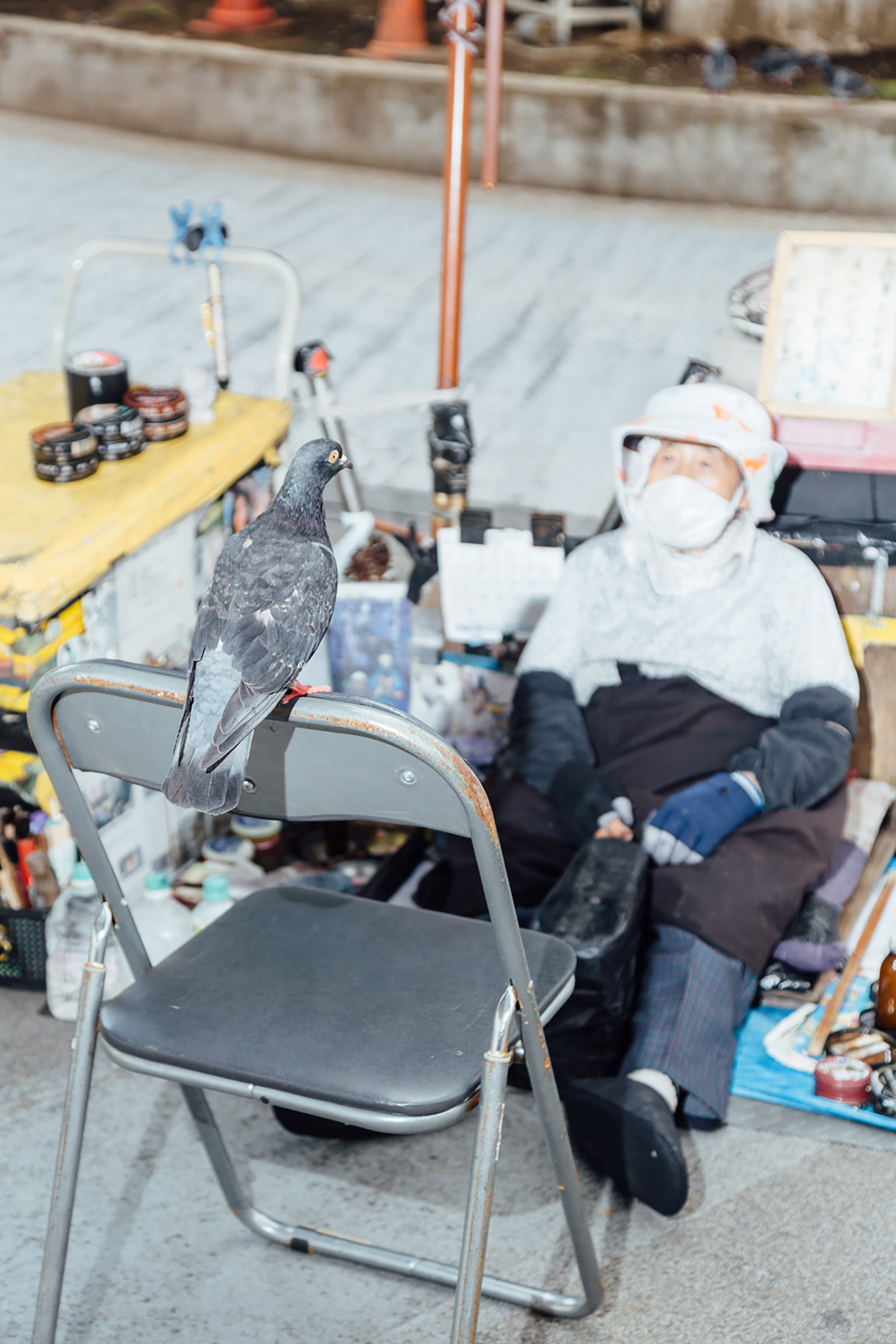
Even before the pandemic struck, Tokyo 2020 was becoming known as “the most jinxed Olympics,” says Kingston. The original logo had to be scrapped following accusations it was plagiarized from a theater in Belgium. The $2.3 billion Zaha Hadid renovation of the Olympic Stadium—the most expensive ever commissioned—was also jettisoned amid a backlash over costs and a design, according to one critic, “like a turtle waiting for Japan to sink so that it can swim away.” It was replaced by a less flashy $1.4 billion steel and wood structure by Japanese architect Kengo Kuma.
Negative headlines have ranged from the potential for human sewage to contaminate water sports in Tokyo Bay to how prone artificial islands—-which house half the Games venues—are to “liquefaction” in the earthquakes that regularly blight the region. Last year, Japanese Olympic Committee president Tsunekazu Takeda, while denying wrongdoing, resigned after he admitted to greenlighting a $2 million payment to a Singapore-based consulting company that French investigators allege was charged with buying IOC votes. And now, of course, there’s a plague.
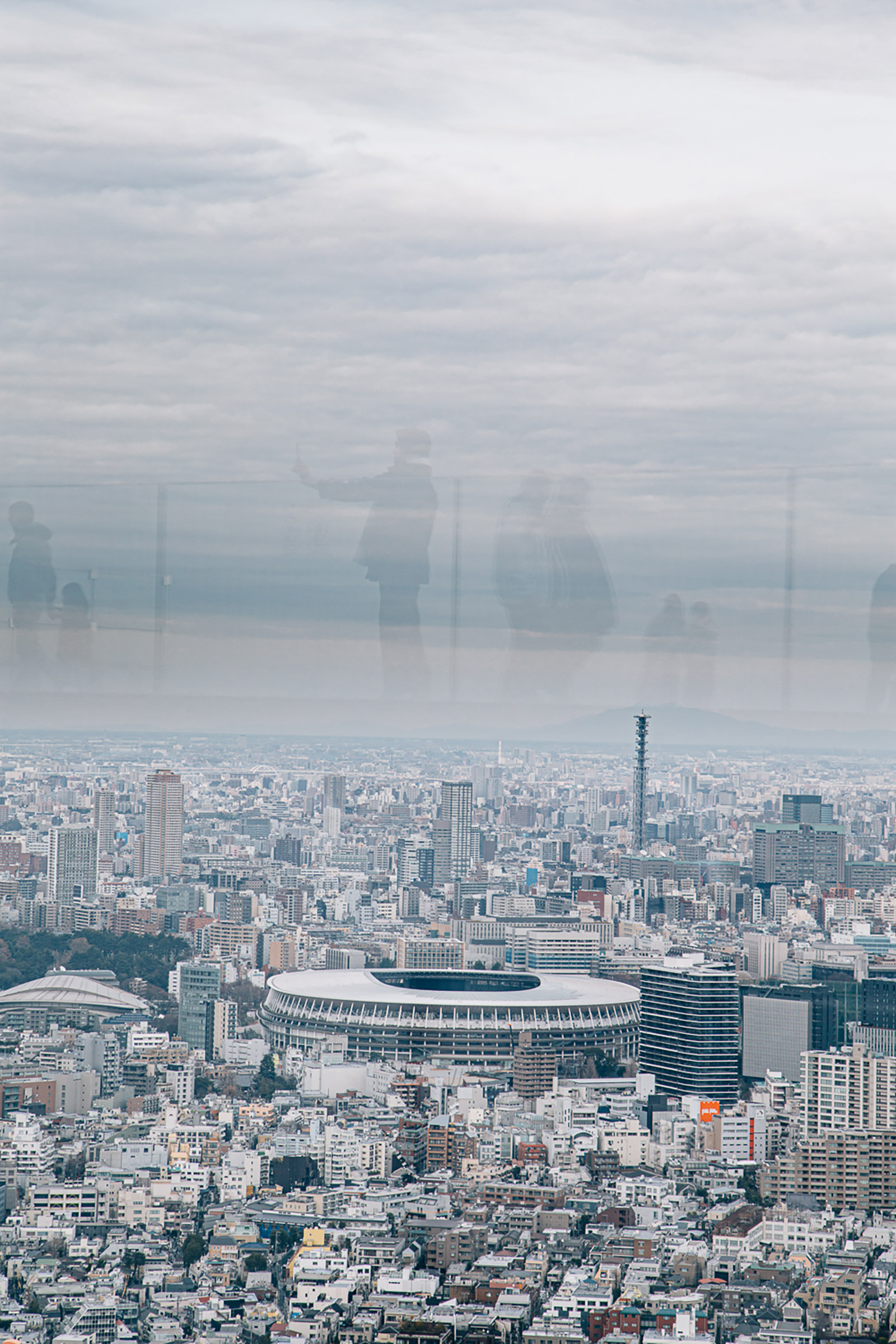
It wasn’t meant to be like this. Japan has experience in using the Olympics as a catalyst for change. The Tokyo Games of 1964 served to salve wounds following World War II, rebranding this American foe turned ally as a high-tech playground. The Shinkansen “bullet train”—the world’s first high-speed railway—was unveiled a week before the opening ceremony. Rivers were enclosed and overpasses thrown up to connect previously sequestered neighborhoods. The Games were a coming out moment that helped define the city we know as Tokyo today.
Japan hoped to repeat the trick this time around. Millions of tons of poured concrete and smelted steel encouraged banks to lend and helped jump-start a moribund economy. “The Olympics has been an excuse to open the coffers and kick-start all this construction and gentrify areas of the city that really needed a face-lift,” says Adam German, a Canadian real estate agent who’s lived in Japan for 16 years. Alterations to hotels, public buildings and transport hubs prepared Tokyo not only for physically impaired Paralympic athletes and fans, but also for the creaking limbs of its own population, the world’s oldest. Politicians hoped an influx of foreign spectators would help prepare this homogeneous society for the relaxed immigration laws necessary to address a severe low-skilled labor shortage. “We want to make the best out of this opportunity to introduce as many people and places to Tokyo as possible,” says Koike.
Tokyo 2020 was also supposed to showcase Japanese recycling, technology and sustainability. The 5,000 gold, silver and bronze medals are cast from metal components harvested from defunct gadgets, including 6.21 million cell phones. Even the artificial islands are constructed from the by–product of Japan’s high-tech trash-burning plants. If the Games had gone to plan, driverless cars would have ferried athletes between the sites; multi-lingual robots would have guided foreign visitors; man-made shooting stars would have dazzled spectators at the opening ceremony. Athletes would have slept on beds made from recycled, though thankfully reinforced, cardboard.
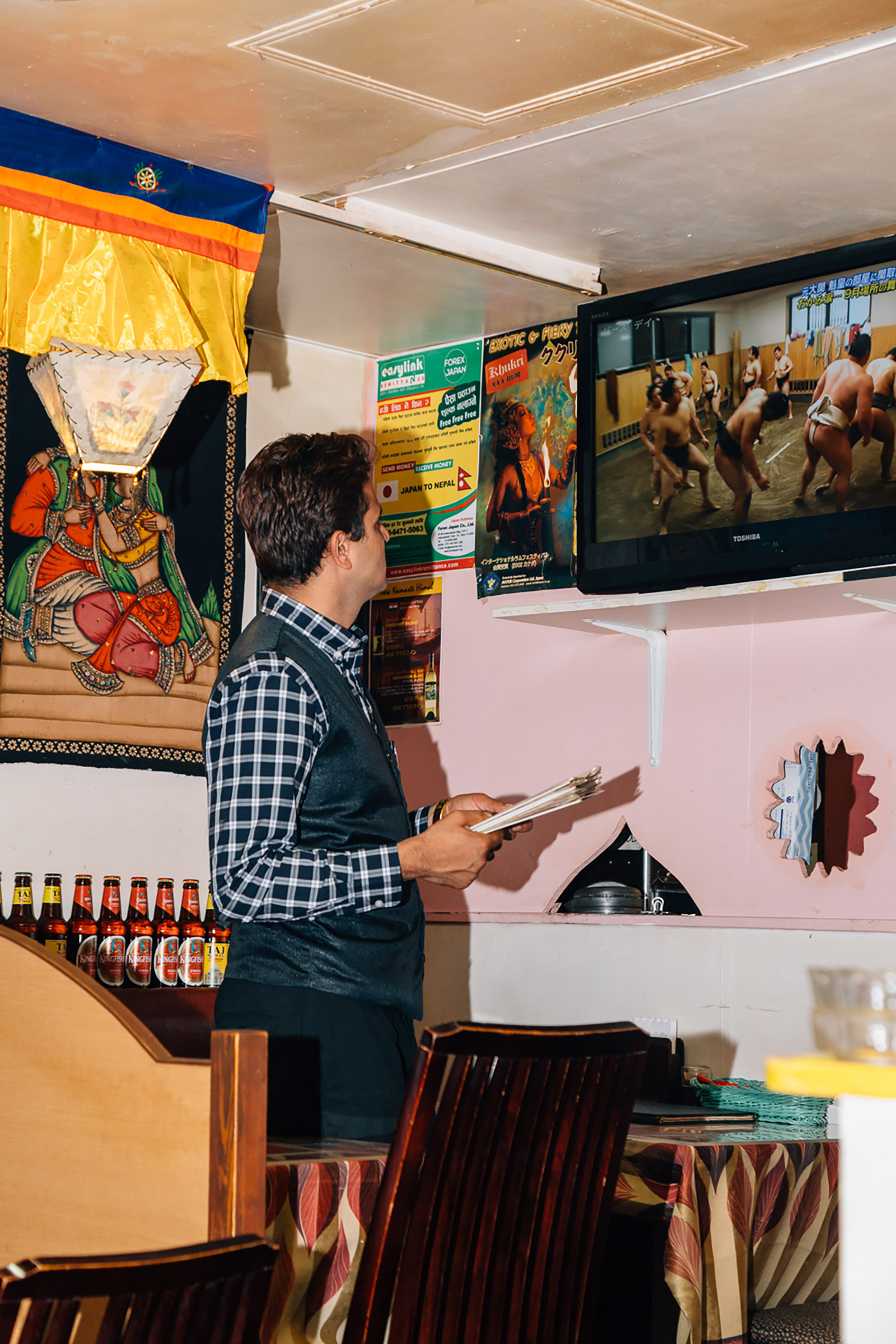
Many of these innovations will now have to be shelved. Koike insists that the green legacy can be strengthened by leveraging the pandemic to imprint a more sustainable format on the Games going forward. “Our goal is not just to reduce costs but show the new model of the Olympic and Paralympic Games,” says Koike. “This will then be passed on to future host cities, such as Beijing, Paris and L.A.”
But in other ways, the Olympics are struggling for relevance. Beyond the pandemic, 2020 was defined by campaigns for racial and social justice, especially Black Lives Matter. Sports franchises from the NBA to Premier League soccer embraced the movement, while everyone from World Athletics president Sebastian Coe to the U.S. Olympic Committee have backed athletes’ right to peaceful protest.
Not the IOC, though, which has so far refused to revise Rule 50 of the Olympic Charter that bans political demonstrations during the Games. Bach says they are currently consulting on amendments but cites pushback from some nations’ athletes. Those who take a knee in Tokyo may face the same sanctions as U.S. sprinters Tommie Smith and John Carlos, who were expelled from the 1968 Mexico Olympics for raising a fist on the podium to protest racism. “We think that the field of play and the ceremonies are not the place for this,” Bach says. “Athletes can express themselves in press conferences, in social media, in team meetings, in all the different events in the mixed zones.”
That may not be enough for many athletes who point out that the Olympics have long wielded politics when it wanted. Apartheid-era South Africa was banned—a sanction first implemented at Tokyo ’64—while North Korea and South Korea were permitted to march and compete under a united flag at the 2018 Winter Olympics in PyeongChang. The IOC just took the controversial step of including break dancing at the Paris 2024 Games, but continues to dither when it comes to peaceful protest despite overwhelming popular support. “The IOC should be showing leadership,” says Rob Koehler, director-general of Global Athlete, which campaigns for athlete rights.
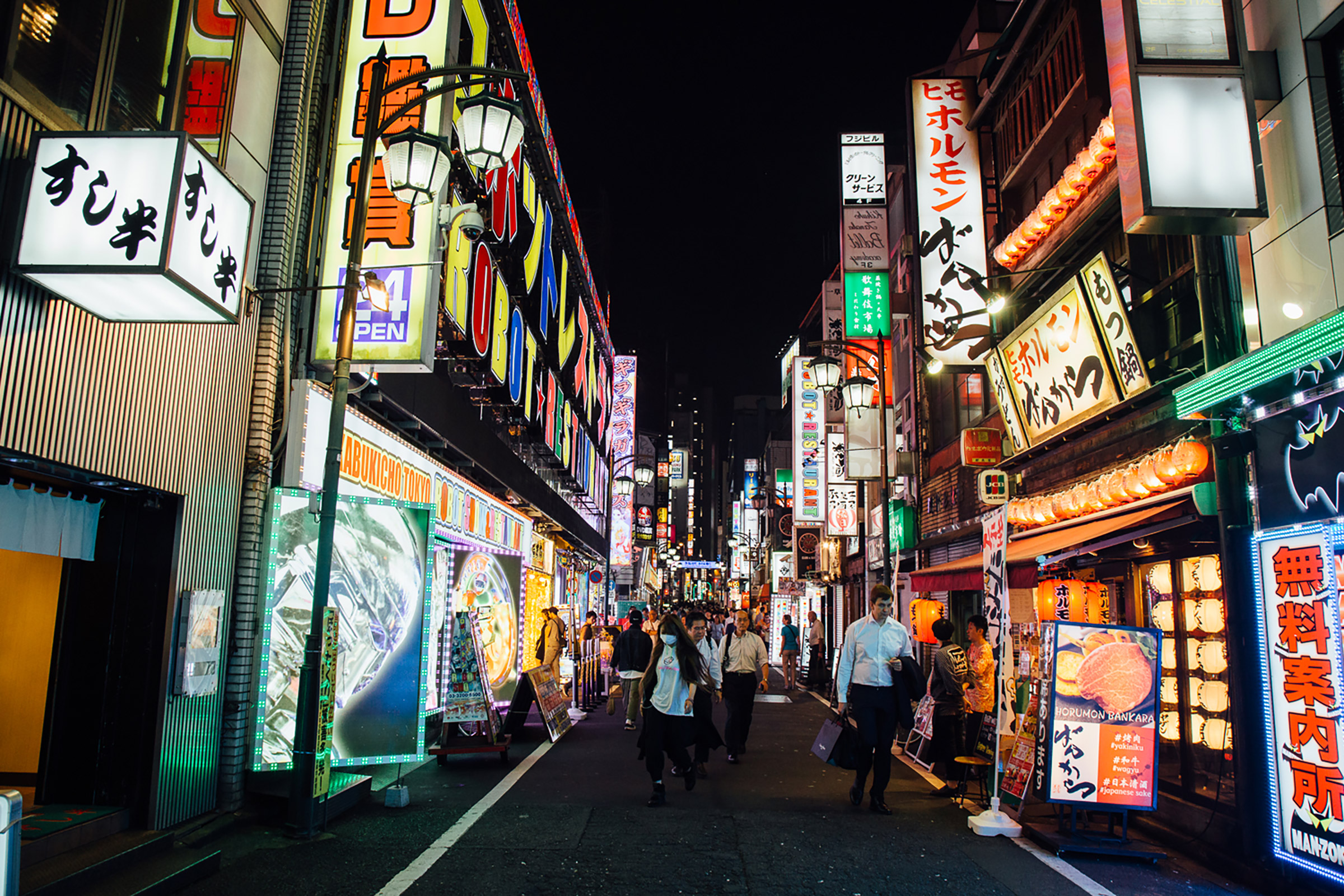
Tokyo’s supporters will point out that the buildup to every Games is dogged by problems. Rio 2016 was beset by allegations of substandard construction, endemic pollution and kickbacks; London 2012 by unfulfilled promises to revive deprived areas of the city and McDonald’s monopoly on french fries impinging purveyors of traditional British fish-and-chips. But once the opening ceremony’s fireworks explode across the night’s sky, sporting prowess takes over and all people can recall are grinning medalists and cheering crowds.
In what was touted as a major test, Tokyo hosted its first international sporting event since the pandemic began on Nov. 8, and Yokohama baseball stadium has held games with a near-capacity 30,000 spectators. When 30 gymnasts from Japan, China, Russia and the U.S. competed in the Friendship and Solidarity Competition in front of 2,000 fans, foreign participants endured a 14-day quarantine at home and were kept in strict isolation in their hotel between events with daily testing. Fans had temperatures taken, and their hands were kept as sanitized as the atmosphere: Seating was spread out, everyone wore masks, and cheering was banned. Speaking after the event, defending Olympic all-around athletics champion Kohei Uchimura hailed it as “a good model case for other sports and other athletes.”
Still, this will be a Games like no other. Lockdown measures will play havoc with training schedules, while some athletes will be forced to withdraw after testing positive—maybe boosting the medal hopes of nations that have conquered the virus, or can purchase vaccines, over the poorly controlled and simply poor.
Sacrifice in the pursuit of excellence defined the Olympics long before politicians and sponsors nuzzled in. That is, after all, what inspires hundreds of millions of sports fans. This year the stakes are higher than ever before—and the real challenge may not be vaccines, border controls and empty stadia, but fulfilling a lofty mandate to “further strengthen humankind’s bonds,” as Koike puts it. A new beginning forged in bronze, silver and gold.
— with reporting by Mayako Shibata/Tokyo and Madeline Roache/London
More Must-Reads from TIME
- Where Trump 2.0 Will Differ From 1.0
- How Elon Musk Became a Kingmaker
- The Power—And Limits—of Peer Support
- The 100 Must-Read Books of 2024
- Column: If Optimism Feels Ridiculous Now, Try Hope
- The Future of Climate Action Is Trade Policy
- FX’s Say Nothing Is the Must-Watch Political Thriller of 2024
- Merle Bombardieri Is Helping People Make the Baby Decision
Write to Charlie Campbell at charlie.campbell@time.com
